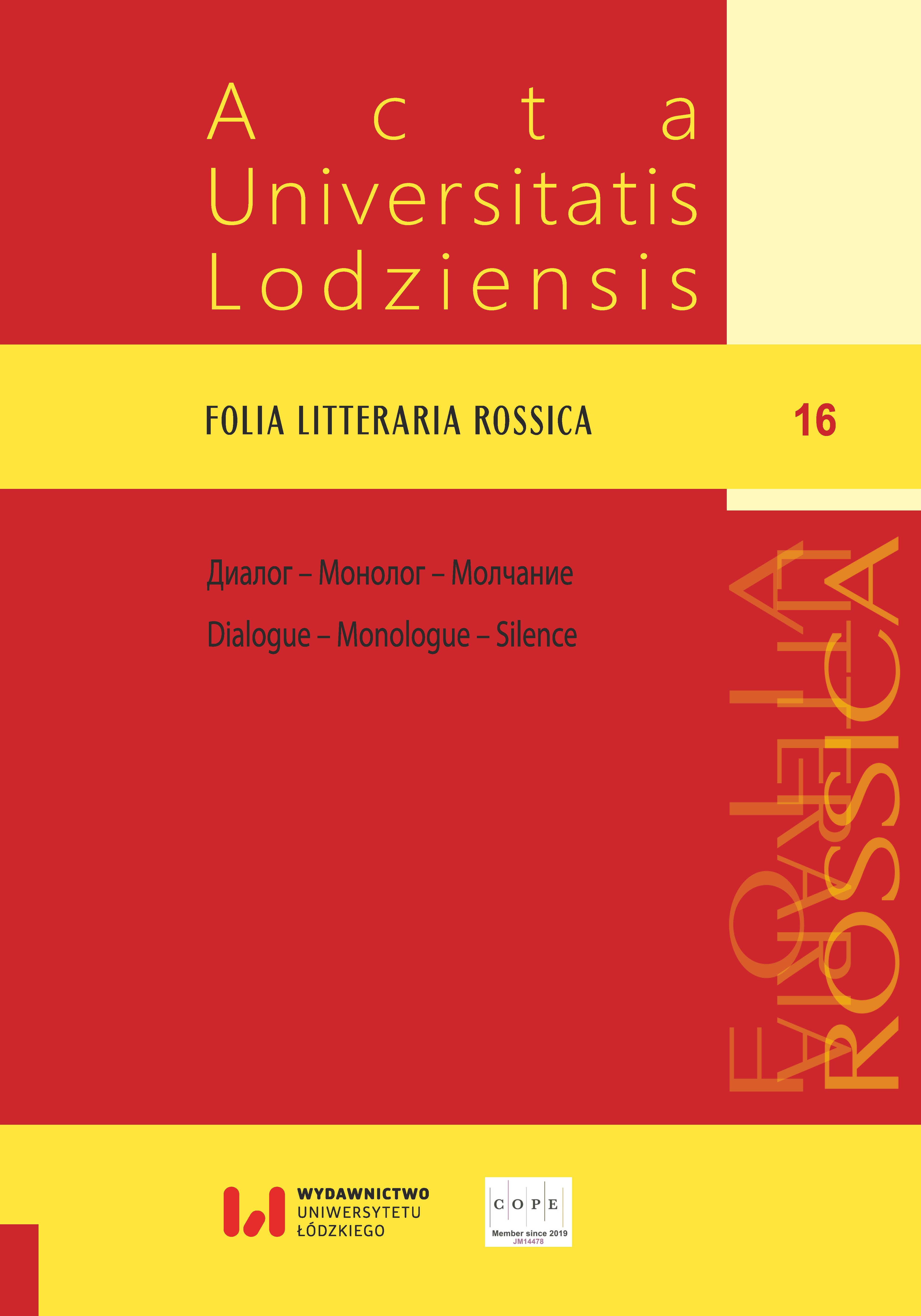Woman as Victim of Manipulation: The Example of Fyodor Dostoyevsky’s Netochka Nezvanova
DOI:
https://doi.org/10.18778/1427-9681.16.15Keywords:
classical russian literature, Fyodor Dostoyevsky, Netochka Nezvanova, psychology, Electra complex, codependency, gaslightingAbstract
This article analyzes the relationship between daughter and stepfather in Fyodor Dostoyevsky’s Netochka Nezvanova (1849), perceiving the presence in it of symptoms of three socio-psychological phenomena – the Electra Complex, codependency, and gaslighting. Dostoevsky sees man as a “mystery” and explores the “bottom of the human soul”. Using the material of Dostoevsky’s novel, the article demonstrates the productivity of the psychological approach to Dostoevsky’s work. It seeks to place this classical text of Russian literature within the paradigms of modern psychology and to show the author’s mastery and insight in describing the above-mentioned socio-psychological phenomena already in the 19th century, although they were determined by modern science only at the turn of the 20th–21st centuries. This analysis also allows us to think about the main character as a victim of manipulation. Symptoms of each of these social-psychological phenomena are present in the behaviour of Netochka. All these forms of manipulation are the result of her stepfather’s addiction. However, it remains moot to what extent they are present in the psyche of the protagonist.
Downloads
References
Banschick, Mark. “The Narcissistic Father: How a narcissistic dad can affect your life”. Psychology Today (2013). [Dostępne online: https://www.psychologytoday.com/intl/blog/the-intelligent-divorce/201303/the-narcissistic-father]
Google Scholar
Dostoevskii, Fedor. Povesti i rasskazy, ed. E. Zhezlovoi. Moskva: Gosudarstvennoe izdatelstvo khudozhestvennoi literatury, 1956: 205–365.
Google Scholar
Dotsenko, Evgenii. Psihologiya manipulyatsii: fenomeny, mekhanizmy i zashchita. Moskva: CHeRo, Izdatelstvo MGU, 1997.
Google Scholar
Freud, Sigmund. Přednášky k úvodu do psychoanalýzy, ed. J. Pechar. Praha: Portál, 2020.
Google Scholar
Freud, Sigmund. Totem und Tabu. Leipzig–Wien: Hugo Heller & CIE, 1913.
Google Scholar
Jarošová, Alexandra et al. Slovník súčasného slovenského jazyka. Bratislava: VEDA, 2015.
Google Scholar
Lekeš, Patrik. Russkaya klassicheskaya literatura s tochki zreniya adiktologicheskogo issledovaniya. In: Slavica Iuvenum 23. Ostrava: Ostravská univerzita, 2022, с. 307–318.
Google Scholar
Litvinchuk, Aleksandra; Chernobrovkin, Valerii. Manipulyatsiya kak sredstvo psihologicheskogo vliyaniya v pedagogicheskom obshchenii. In: Duhovnіst osobistostі: metodologіya, teorіya і praktika: zbіrnik naukovih prac. Lugansk: Skhіdnoukr, 2005: 103–114.
Google Scholar
Nazare-Aga, Isabelle. Les manipulateurs et l´amour. Montreal: Groupe Sogides inc., 2000.
Google Scholar
Oxford Advanced Learner´s Dictionary, ed. Cowie, Anthony Paul. Oxford: Oxford University Press, 1989.
Google Scholar
Ozhegov, Sergei. Slovar russkogo yazyka, ed. N. Shvedova. Moskva: Russkii yazyk, 1989.
Google Scholar
Savrnochova, Michaela; Rusnakova, Markéta. Spoluzavislosť v rodine s clenom zavislym od alkoholu. In: Socialna patologia a intervencia socialnej prace, ed. A. Matel & L. Janechova & L. Roman. Bratislava: VSZaSP sv. Alzbety, 2011: 65–77.
Google Scholar
Sidorenko, Elena. Trening vliyaniya i protivostoyaniyu vliyaniyu. Sankt-Peterburg: Rech, 2004.
Google Scholar
Słownik języka polskiego, ed. W. Doroszewski. Warszawa: Wydawnictwo Naukowe PWN, 2023. [Dostępne online: https://sjp.pwn.pl/szukaj/manipulacja.html]
Google Scholar
Stern, Robin. Skrytye manipulyatsii dlya upravleniya tvoei zhizni. STOP gazlaiting. Sankt-Peterburg: Piter, 2018.
Google Scholar
Tomsik, Robert. V zajati narcizmu. Praha: Grada, 2023.
Google Scholar
Downloads
Published
How to Cite
Issue
Section
License

This work is licensed under a Creative Commons Attribution-NonCommercial-NoDerivatives 4.0 International License.












